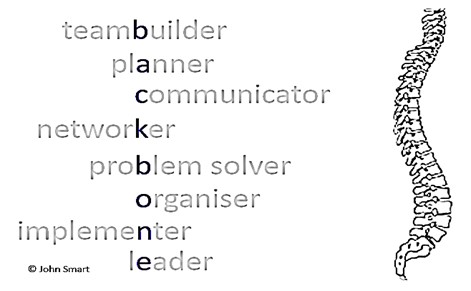The Anatomy of a Supervisor

What exactly does it mean to be a Supervisor? What does a Supervisory role entail? What are the responsibilities to be undertaken? What are the desired behaviours or characteristics needed? These questions, and others on the topic, cannot be answered in specific detail, as a Supervisor in one organisation may be different to a Supervisor in another; with the roles and responsibilities directed by the organisation itself, the situation or process. However, through studies, research and analysis of the varying roles over many years there are some important core answers we can give to these, and other questions about the role.
The Supervisory role (which may include Team Leaders and similar titles) is one of the most important roles in an organisation; yet it is also one of the most overlooked and neglected, despite it being one of the most difficult to master. It is usually the first taste a person will get of the transition from being a ‘member of the team’, to becoming ‘the leader and manager of the team’. It is by this very fact that the Supervisory role can make a tremendous difference to an organisation’s success – or its failure. If the correct development is conducted, then this will greatly increase an organisation’s opportunity for greater achievement and success.
The role is often likened to that as the key interface between ideas and action; with ‘management’ creating, formulating the ideas, and the ‘operatives’ carrying out the required action, but it is the Supervisory role that allows this transfer to happen in an organisation. It’s the Supervisor who helps translate what needs to be done – into what actually gets done. They are the conduit by which the organisation operates, and things are implemented. If they fail in their role then this can have a major impact on plans, strategies and performance. Ultimately, they are the enablers that ensure the desired outcomes for the organisation are acted on and achieved. It is why the position is often described as the ‘buffer’, ‘fire-wall’ or even more appropriately – the ‘backbone’ of the organisation. If it is broken – nothing works.
The Supervisor as the Backbone of the Organisation
For many, the transition from being a member of the team to actually being in control of the team can be a daunting prospect; and, without proper training and development, many will fail during this critical time. As stated earlier, a Supervisor must be both a Manager and a Leader in their own right, yet still retain the pragmatic and practical attributes to ‘get things done’. To accomplish this, they will require excellent interpersonal and communication skills, be able to deal with day-to-day problems and make decisions quickly and effectively, they will need to manage employee performance, time management, safety, as well motivating, coaching and mentoring others. These, and many more behaviours and skills, are some of the fundamental competencies required.
Having a Supervisor who can be trusted, is competent and know that they will carry out what is needed, as well as get others to do this to a high quality, with minimum disruption and with willingness – is worth their weight in gold. Having competent, developed and motivated Supervisors in an organisation can make a real, noticeable difference. But without the correct development and training more problems can be caused than solved.
Whether you are a seasoned Supervisor with many years’ experience or newly appointed in the role, we all have something we can learn to improve our overall development and performance. Or if you are responsible for development in your organisation, you can now understand how critical the Supervisory role is to an organisation’s success.
The GLOMACS course: ‘Competency Development for Supervisory Excellence in the Oil, Gas & Petrochemicals Industry’ has been specifically designed and developed to address the behaviours, skills and competencies required to achieve excellence in the Supervisory role.
This is an article written by Mr. John Smart, a Senior Consultant with GLOMACS specializing in Leadership Development, Management Development, Supervisory Development, Talent Development, Performance Management, Change/Transformation Management, Strategy Development, Coaching, Executive Coaching, as well as Behavioural Competency, Psychometric and Occupational Assessment.


